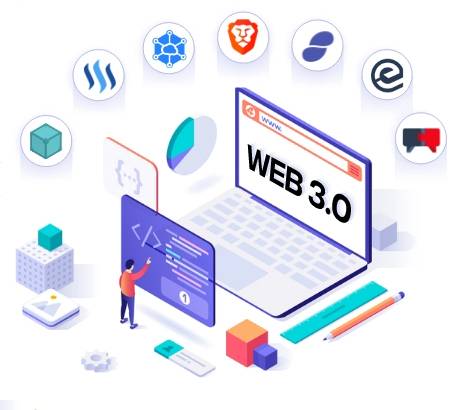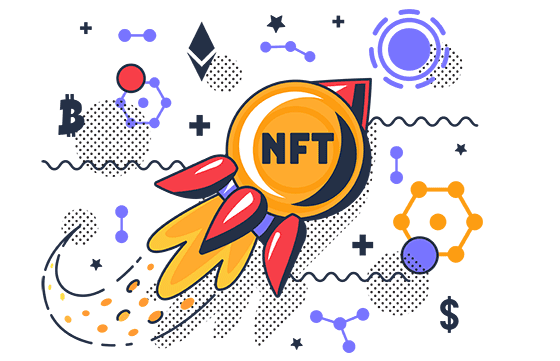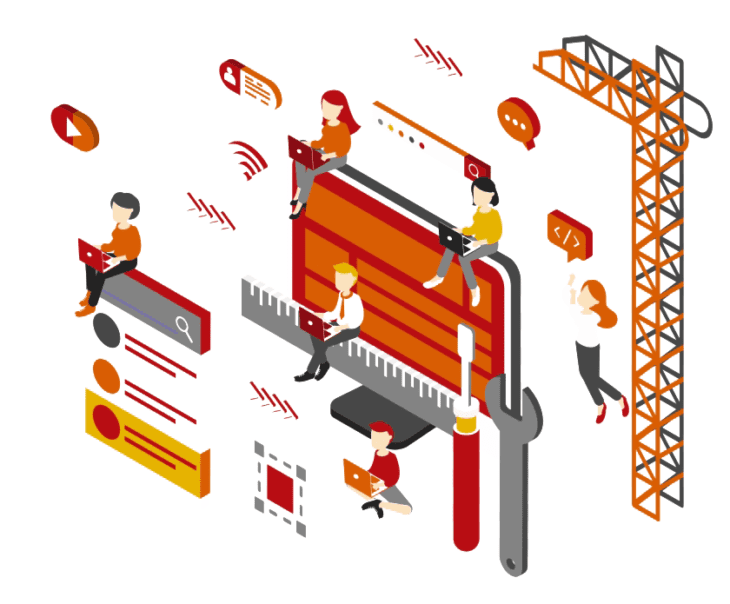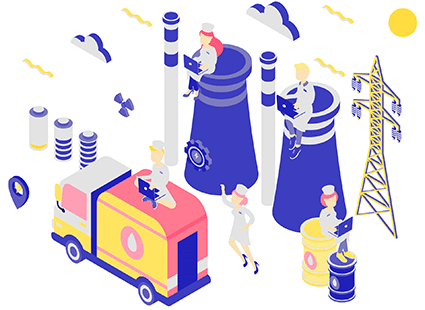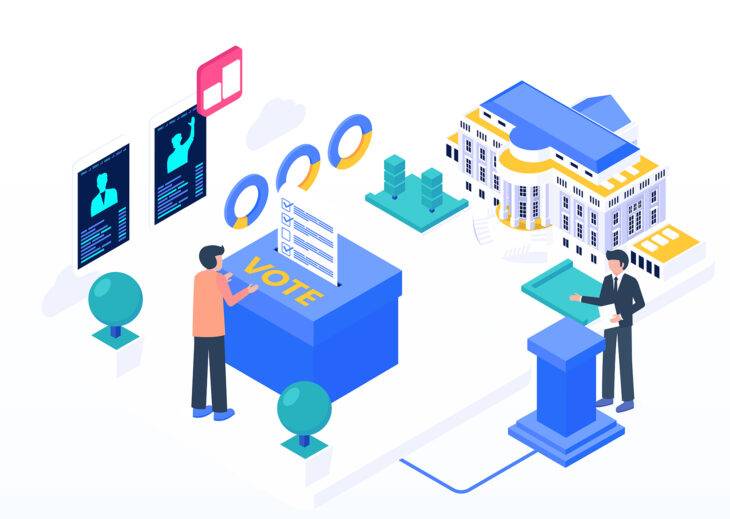As the public becomes tired of Big Tech’s invasions of privacy, Web3’s decentralization concept has never looked stronger.
Nearly 4 trillion hours. This shows the amount of time consumers worldwide spent gazing at their phones in 2021. While this figure is nearly unbelievable, it should not come as a surprise given our increasing dependency on the internet, which has grown more prominent during the Covid-19 pandemic.
Since the birth of the World Wide Web in the 1980s, the internet has come to revolutionize the way people live, work, and play. Today’s internet has become an essential component of our daily lives, even fueling the global economy from business to recreation. According to a study conducted by App Annie’s State of Mobile 2022, seven out of every ten minutes spent on our phones were spent on social or picture and video applications, attesting to Web 2.0’s dominance in our daily lives.
However, while the internet — and Web 2.0 — has undeniably become almost irreplaceable in today’s world, issues such as data privacy and system outages have emerged over the last couple of decades, leading to growing discontent as the general public begins to question the tech giants’ use of their personal data.
Is it a fresh vision for the future or a pipe dream? The Case for a Decentralized Web
As requests for increased control and autonomy over data privacy and digital identity grow stronger, the concept of Web 3 seems to be attractive. Even as Web 3 concepts like non-fungible tokens (NFTs) and the metaverse gain popularity, challenges such as cybersecurity concerns and continuous dependence on centralized ecosystems remain, as seen by the recent CoinMarketCap pricing malfunction.
This raises the question: Can Web 3 deliver on its promises, or does it fall short of its ambitious goals?
Web 3, which is underpinned by blockchain technology, may be characterized as the next iteration of the internet that promises a more decentralized, independent, and autonomous web. Power is returned to the public, and dependence on centralized ecosystems is reduced to a minimum.
As the public becomes tired of significant tech businesses’ privacy violations and data harvesting, Web 3’s core notion of decentralization has never looked more appealing. This implies that data is kept over a distributed database so that no one user has complete ownership while simultaneously letting consumers to own their data and circumvent any middlemen for each piece of data generated. At the same time, the immutability of blockchain implies that the data input is irrevocable and permanently stored, eliminating the dangers of altered data, hackers, and, perhaps, fraud. Individuals may also examine the data on public chains, shattering the monopoly of walled gardens and third-party suppliers while offering unlimited options for users to monetize their data.
Aside from transparency and immutability, blockchain-based Web 3 technologies provide consumers with a deeper feeling of ownership. Purchasing tokens or coins, for example, might give users a “stake” in the network or protocol. Participation is simple: you may vote on protocol choices as long as you hold the token. Users are therefore allowed to engage in initiatives in which they believe.
Beyond buzzwords, will Web 3 achieve widespread utility?
Web 3 is gaining popularity among the general population, but with equal parts skepticism and excitement, as interest in crypto and blockchain grows. Web 3 supporters herald it as the internet’s future. Meanwhile, in Elon Musk’s words, skeptics see Web 3 as little more than a “marketing phrase.”
Regardless of one’s point of view, Web 3 and its accompanying technologies have definitely seen a plethora of applications develop since the phrase was invented in 2006 by New York Times writer John Markoff and popularized by Ethereum co-founder Gavin Wood.
Perhaps the most prevalent and popular use case for Web 3 is in the cryptosphere, namely with cryptocurrencies and non-fungible tokens (NFTs). However, the value of Web 3 — and, by extension, blockchain — may go well beyond cryptocurrencies. Decentralized apps (dApps), for example, are available for banking, arts, collectibles, and gaming, whereas NFTs have the ability to transform various sectors, including art, sports, entertainment, and gaming. Consider the content producers who can monetize their work using NFTs, avoiding the intermediaries who would have historically received a cut of the revenues. Or the gaming business, where players may engage in play-to-earn games and earn an alternative source of money in today’s pandemic-stricken globe.
While most of what has been occurring with the metaverse has been restricted to niche sectors such as NFTs and GameFi, the trend has been growing and seeing greater attention from mainstream actors who want to have a share in this potential development. Similarly, the metaverse notion is intrinsically intertwined with Web 3 and has received much attention in recent months. For example, Nvidia Omniverse, a scalable simulation and development platform created to construct the metaverse, enables developers to model the digital world in real-time. This bodes well for the future of the metaverse as more developers join forces to build the metaverse’s infrastructure.
Traditional banking is also changing, with decentralized finance (DeFi) gaining traction, as indicated by a 1,200% rise in total value locked (TVL) in DeFi protocols in 2021 alone. DeFi, a key component of Web 3, enables real-world financial transactions to be readily carried out on the blockchain, resulting in increased financial inclusion for individuals previously excluded from the existing financial ecosystem.
Big tech vs. blockchain: the dynamics of a Web 2 vs. a Web 3 world
Despite Web 3.0’s potential for circumventing walled gardens and redistributing power to the public, some objections have been leveled at such utopian concepts. Many blockchain networks, for example, have inequitable ownership distribution. Instead, many of these protocols find ownership concentrated among early adopters or supported by venture capital investments, implying that real power remains concentrated in the hands of a few. Similarly, the entry of IT behemoths such as Meta and Microsoft into the Web 3 fight has generated worries that Web 3 would be another walled garden.
Finally, Web 3 is expected to comprise several enterprises generating various goods across various industries for various objectives. It is critical to recognize that, for all of Web 3’s potential, it is just one aspect of a bigger totality. Much as Web 2 built on the foundations of Web 1, we may expect Web 3 to build on top of prior internet generations.
How this will play out as Web 3 evolves remains to be seen. Undoubtedly, the public will have a more prominent voice in developing Web 3. After all, the future of the internet is decentralized and that is why NFT has become Collins Dictionary’s word of the year for 2021.
